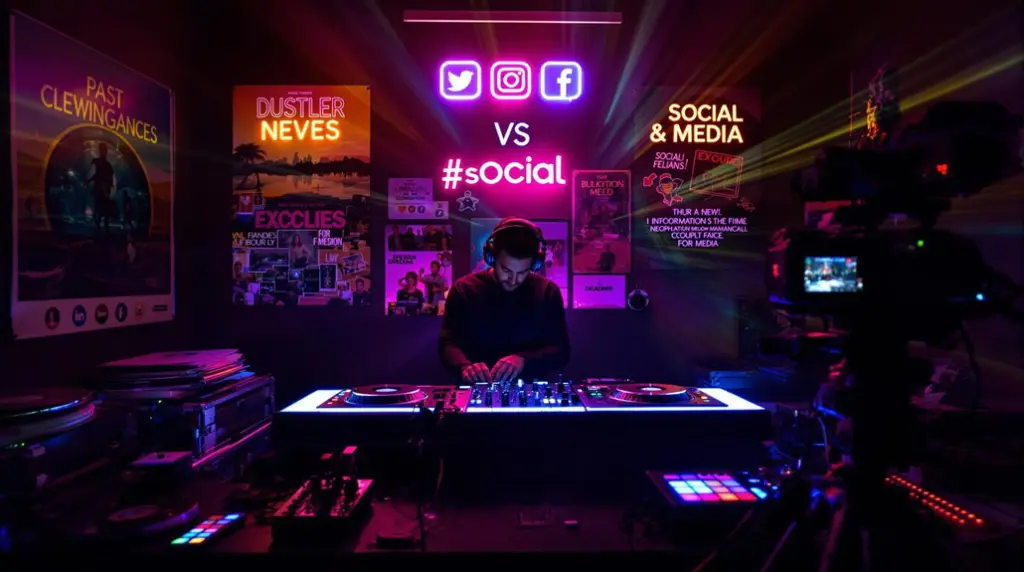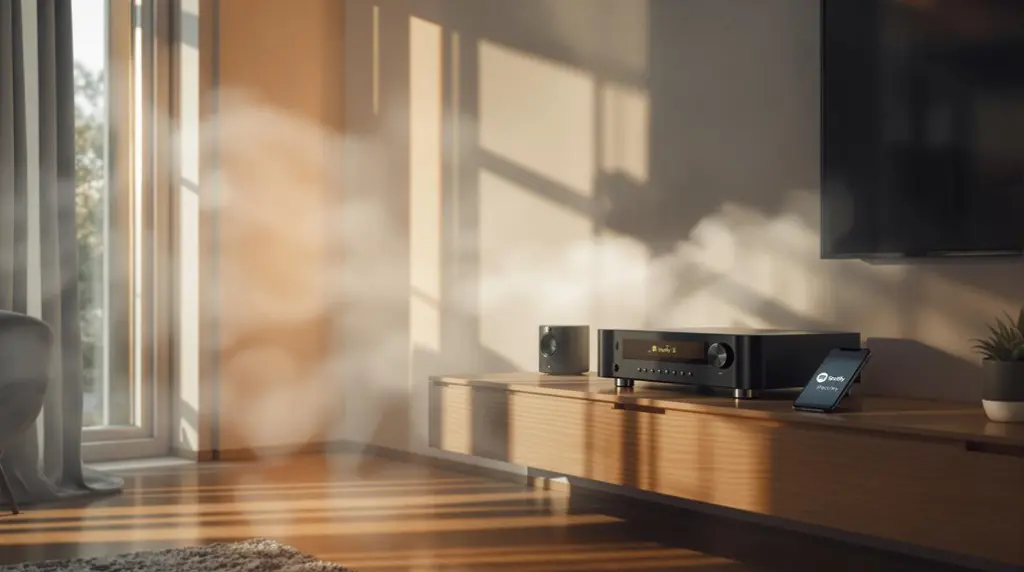To guarantee your DJ event runs smoothly, start by securing the necessary permits, particularly a premises license for late-night music and alcohol sales. Understand and comply with music copyright laws by obtaining licenses from organizations like PRS and PPL. Protect yourself and your event with adequate insurance, verifying coverage details and ensuring it’s up-to-date. Adhere to venue regulations, checking for required permits, compliance with noise regulations, and proper liability insurance. Finally, enforce strict age and ID verification to prevent underage access. Addressing these legal aspects upfront sets the foundation for a successful event, opening up more opportunities to focus on the experience.
Key Takeaways
- Obtain a premises licence and ensure a Designated Premises Supervisor with a Personal Licence is present for alcohol sales.
- Secure licenses from performance rights organizations like PRS and PPL for music played at the event.
- Ensure that the venue complies with all necessary permits, noise regulations, and has adequate liability insurance.
- Implement robust age and ID verification processes to prevent underage access to the event.
- Review and update DJ and venue insurance policies to cover potential accidents and damages.
Obtain Necessary Permits
To guarantee your DJ event runs smoothly, you’ll need to secure the appropriate permits, such as a premises licence, especially if you plan to sell alcohol or play music past 11pm. Understanding local regulations is important in this process. If you’re planning to sell alcohol, a Designated Premises Supervisor with a Personal Licence must be present. This requirement promotes public safety and compliance with local laws.
The application for a premises licence can be submitted either electronically or via post. Opting for the electronic method can be more cost-effective and might also save significant time. Typically, the approval process takes around 28 days, provided there are no objections from the community or local authorities.
Event logistics, including the timeframe for obtaining permits, should be meticulously planned. Larger events, like festivals, may require additional time due to their complexity and the higher number of permits needed. It’s advisable to start the application process well in advance to avoid any last-minute hurdles that could jeopardize the event.
Understand Music Copyrights
Understanding music copyrights is essential for DJs, as it guarantees that the creators of the music you play are fairly compensated and legal conflicts are avoided. You must be well-versed in the various aspects of music copyright laws, including international copyright laws, to make sure you’re compliant no matter where you’re performing.
To legally play music, you’ll need to secure licenses from performance rights organizations (PROs) like PRS and PPL. These licenses cover the public performance of copyrighted music, from live events to streaming from platforms. Here’s a quick breakdown of key points:
| Aspect | Detail | Consideration |
|---|---|---|
| Licensing | Obtain from PROs like PRS, PPL | Mandatory for legality |
| Fair Use | Limited exceptions exist | Rarely applicable to DJs |
| Sampling | Legality varies | Secure rights if used |
Understanding these elements can help you avoid hefty fines and legal issues. Sampling music, for instance, requires you to understand the legality surrounding the use of copyrighted segments. Additionally, familiarize yourself with public domain songs, which do not require licensing and can be freely used. Always stay informed and compliant to ensure your events run smoothly without legal interruptions.
Secure Adequate Insurance
Securing adequate insurance is essential when hosting DJ events, as it protects against potential accidents and damages that can occur. You’ll need to inquire about the DJ’s insurance coverage to guarantee it provides ample protection. Specifically, verify the DJ’s liability insurance by requesting a copy of their policy. This step allows you to review the policy for validity and scrutinize the coverage details, ensuring they align with the needs of your event.
Adequate insurance coverage is pivotal to safeguard against potential risks and liabilities. Make sure the DJ’s insurance is up-to-date and tailored to the specific requirements of your event. This proactive approach helps mitigate financial risks should any unforeseen incidents or accidents arise during the event. Additionally, understanding the coverage limits is essential. These limits dictate the maximum amount the insurance company will pay in case of various incidents, which directly impacts your financial safety net.
Having proper insurance in place not only provides peace of mind but also ensures financial protection. Remember, the goal is to host a successful event where both fun and safety are prioritized. Hence, thorough verification and review of the DJ’s insurance should be at the top of your planning checklist.
Comply With Venue Regulations
Ensuring the selected venue adheres to all necessary permits and licenses is vital when planning your DJ event. You’ll want to verify every aspect is legally compliant to avoid any disruptions. Here’s an analytical breakdown of what you need to take into account:
- Permits and Licenses: Confirm the venue has all the required permits and licenses. This isn’t just a formality; it’s a legal necessity that protects you and ensures the event proceeds without legal hitches.
- Noise Control and Event Timing: Local regulations often have strict guidelines about noise levels and operational hours. Make sure your event aligns with these to avoid fines or shutdowns.
- Liability Insurance: Check that the venue’s insurance coverage is adequate. This is essential for protecting against potential liabilities resulting from accidents or damages during your event.
- Safety Standards and Equipment Maintenance: The venue’s equipment must meet safety standards and be well-maintained. This not only ensures smooth running of the event but also safeguards against accidents.
- Venue Specific Restrictions: Discuss any special requirements or limitations with the venue early on. Understanding these details will help in planning your event within the bounds of legality and venue policy.
Manage Age and ID Verification
To effectively manage your DJ event, you’ll need to implement strict age and ID verification processes to prevent underage access to alcohol and restricted areas. Utilizing advanced age verification techniques, such as ID scanning, is essential. These tools not only streamline the entry process but also guarantee compliance with legal age requirements.
Training your event staff on these protocols is vital. They must be adept in both the technical aspects of ID scanning and the interpersonal skills required to handle situations discreetly and respectfully. This training helps in maintaining a safe and responsible environment.
Moreover, clear signage that details the age restrictions and ID requirements should be visibly displayed at all entry points. This transparency aids in managing attendees’ expectations and reduces conflicts at the event entrance.
Collaboration with local authorities can further strengthen your efforts in preventing underage access. Law enforcement can provide additional support if issues arise during the event.
Here’s a quick guide on key age and ID verification elements:
| Aspect | Tool/Technique | Benefit |
|---|---|---|
| Age Verification | ID Scanners | Quick, reliable checks |
| Staff Training | Workshops & Role-Playing | Enhances protocol adherence |
| Signage | Clear, Visible Signs | Informs and directs attendees |
| Legal Compliance | Collaboration with Police | Ensures support in legal matters |
| Safety | Wristbands | Eases monitoring within the venue |
Adhering to these strict protocols ensures a smooth, lawful, and enjoyable event for all attendees.
Frequently Asked Questions
How Do You Organize a DJ Event?
To organize a DJ event, you’ll start by selecting a suitable venue and devising effective marketing strategies to attract your target audience. Guarantee everything’s set for a smooth, successful event.
What Should Be in a DJ Contract?
Your DJ contract should detail event specifics, payment terms, and performance expectations. It must include a clear cancellation policy, setup requirements, and both parties’ responsibilities. Always consult a legal expert when drafting.
How Do DJS Get Permission to Play Music?
To play music legally, you’ll need to secure music licensing from rights organizations or use licensed platforms. Additionally, check venue agreements for existing licenses that cover performances to avoid any legal complications.
How to Start a DJ Event?
To kick off a DJ event, you’ll need to concentrate on venue selection and effective marketing strategies. Make sure the venue suits your audience and use targeted ads to attract attendees.
Conclusion
You’ve navigated the complexities of permits, respected music copyrights, secured the right insurance, and complied with venue regulations.
Remember, managing age and ID verification is vital to maintain legality and safety.
By adhering closely to these guidelines, you’re not just organizing an event; you’re crafting a compliant, successful experience.
Stay informed, precise in your preparations, and vigilant in execution to guarantee your DJ event isn’t only memorable but also legally sound.




